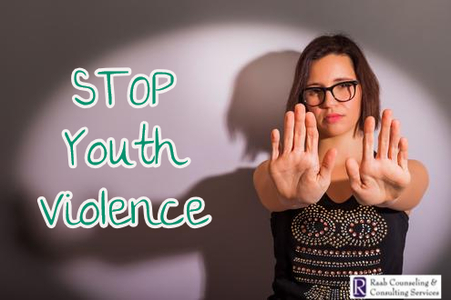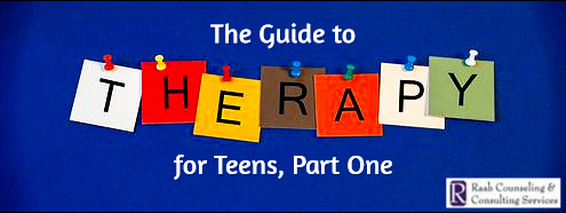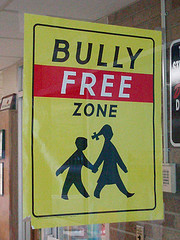|
Why is my Mom is Making Me Go to Therapy? If you are reading his post, you are probably one of two types of people:
My next few posts are all about helping parents and teens understand each other’s point of view about going to counseling. Today, I answer two very common questions from teens about therapy. “Can my parents make me go to counseling?” The answer is a little tricky. Legally, it varies from state to state. In Colorado, teens who are 15 years and older MUST consent to their own therapy. Parents have to give their permission for teens who are under the age of 15 to be seen by a counselor. The age limit might be different in your state, but written permission for therapy is required everywhere. So, if you are under 15, and live in Colorado, your parents can “make” you go to therapy. They can also strongly encourage older teens to go or make it a requirement in their home. What parents cannot do, is force you to talk or make you be honest with your therapist. This is something you have to decide for yourself, regardless of your age. “Why do my parents think I need to go to therapy?” Sometimes it can help to speak with someone who is objective, meaning they aren't part of your family, your school or your community. Some of the main reasons I see teens for counseling are when they experience:
This is just a short list of the things you can talk about in therapy sessions. Nothing is off limits. If you want to talk about it, go for it! Therapists are great listeners PLUS they'll offer suggestions and work with you to meet your goals. Check back next week for a post about what you can expect when you go to therapy sessions. I'll also be posting soon about what's up with your therapist and why you just might like therapy! Update: Check out the second and third parts of the series! The Guide to Therapy for Teens, Part Two: What to Expect in Counseling The Guide to Therapy for Teens, Part Three: What's the Deal with Your Therapist? Bethany Raab is a Licensed Clinical Social Worker in Denver, Colorado.
She is passionate about helping teens and families be happy and healthy!  One in four American students will be affected by youth violence this year. (Students Against Violence Everywhere, SAVE) Youth violence includes bullying, school violence, criminal acts, gang violence, teen dating violence and more. These issues can have an immense impact on victims. Teens who have been hurt may respond in a variety of ways including (but not limited to) anger outbursts, depression, anxiety or self-harming behaviors. Now for some good news! The National Criminal Justice Reference Service reports that teen violence has decreased significantly in the last 20 years. This is the result of a lot of hard work by teens, parents, schools, law enforcement and various government and private agencies. While this is fantastic, it does not mean the problem of youth violence has been solved. There is still more work to be done. Wondering how you can help? Here are 5 ways you can help support the anti-youth violence message at home:
Now is a great time to give these a try in honor of National Youth Violence Prevention Week (March 23-27, 2015). Even if you miss the week celebration, there is never a bad time to talk to your kids about youth violence. Bethany Raab is a Licensed Clinical Social Worker in Denver, Colorado.
She is passionate about helping teens and families be happy and healthy!
If, as you read, you begin to think that your family might benefit from making changes in one or more of these areas, do not worry! It is never too late to take action. See each step below for specific examples on how to bully-proof your child!
Finally, check out my 2012 blog article on helping kids know what to do if they are bullied or witness someone else being bullied. Click here to read more. Image from Flickr. Some rights reserved by Eddie~S. Bethany Raab is a Licensed Clinical Social Worker in Denver, Colorado.
It is hard to believe that it is the end of September and most Denver-area schools have been in session for over a month. How is your child doing in school? What problems, if any, have you and your children come across? Has your child revealed they are being bullied at school? Or have you learned that your child is bullying his or her classmates? This entry is the first in a 2 part series about bullying.
18.8% of Colorado kids have been bullied at school according to the Colorado Healthy Kids Survey and the Colorado Legacy Foundation (CLF). CLF research shows that kids who are bullied experience a variety of symptoms including poor school attendance, low grades and low motivation to pursue higher education. More serious consequences can include drug use, depression, suicidal ideation and suicide attempts. Parents and their kids both play an important role in standing up to bullying. Experts at Children’s Hospital Colorado (CHC) suggest that parents offer support if their child discloses they are being bullied. This is important as many children are hesitant to reveal they are being bullied for fear of being blamed for the bullying. Stopbullying.gov recommends that parents avoid placing blame on their child and provide a safe environment for the child to discuss what has been happening. Parents asking their children what they believe may be helpful to alleviate the bullying can also be beneficial. Parents may ask that school officials intervene. School counselors and staff can help children create plans to deal with bullying. Schools can also help mediate between the child and the bully. Parents should also be aware that the Colorado State Legislature passed a Bullying Prevention Law in 2011. This allows legal action to be taken in cases of bullying. Stopbullying.gov also recommends some specific actions for a child who is being bullied:
Finally, a child that has been a victim of bullying may benefit from speaking to a mental health professional about their experience. Bethany is available to work with children and families dealing with bullying. Whether your child has been bullied, or is the bully, Bethany can help. You can contact Bethany by phone at 720-722-0527 or send her an email to get started. |
Welcome!
Every blog post you see on this page is written especially for teens and their parents! Like it? Pin it!
Follow me!
Categories
All
|



 RSS Feed
RSS Feed